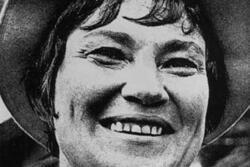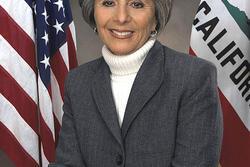The Eve Ensler Monologue
I’ve always believed in the power of words. I’ve learned the most from engaging with individuals’ stories, and the best way I know how to influence others is through my writing. I believe that using words as a way to push for social change is profoundly meaningful, and Eve Ensler, author of The Vagina Monologues, is a perfect example of this phenomenon.
In 1996, Ensler interviewed over 200 women on their thoughts and opinions about their vaginas. She then turned these interviews into a play: The Vagina Monologues. The award-winning play includes monologues from the perspective of a lesbian sex worker, a rape victim, and a menopausal woman, among others. Since its original premiere in New York, it has been performed in 35 languages in over 200 countries.
The very concept behind the The Vagina Monologues is revolutionary. The play explores women’s thoughts on their bodies and sexuality, and brings to light issues and experiences that women all over the world face. By drawing attention to violence against women, the play functions as a weapon against the idea that women shouldn’t talk about the abuse they’ve faced. Through the stories shared in Monologues, the play encourages all women to love themselves and their bodies, and makes it easier for women to share their own stories. When women feel more comfortable using the word vagina and talking about their experiences, it’s a step towards asserting ownership over their own bodies.
The play has not only been meaningful for women who’ve seen it and participated in it, but it's also led to concrete social change. Ensler used the play as a launch-pad to start V-Day, a campaign to end violence against women and girls. Activists have raised over $100 million at V-Day campaigns at colleges and in various communities, which has been used to fund anti-violence organizations, as well as to support others advocating against violence.
Ensler’s work is incredibly inspiring to me as a feminist; it’s moving to see the difference one person can make. On another level, I know that Monologues has contributed to the growing body positivity movement that encourages me to love my body, and this inspires me to promote self-love. Most importantly, Ensler’s work moves me because she’s made the world safer for me and my fellow women by raising awareness and funds to stop all manner of violence against women.
Ensler is also inspiring to me as a writer. Monologues shows that it’s possible to write successful, well-written stories from a place of passion and curiosity. It’s exciting to have an example of a play written in this vein that is both widely appreciated and impactful. Ensler inspires me to be brave in my writing. She makes me want to write about things that no one else has.
Ensler has paved the way for me, both as a feminist and as a writer, and she has provided a way for women all over the world to fight back against the ever-present threat of sexual violence. As a young woman who is passionate both about writing and making a difference, it’s encouraging for me to see how Ensler’s words and actions have significantly helped women and girls around the world. I hope I can emulate what Eve has done so eloquently and successfully, and use my words to change the world.
This article was also published on Teen Voices at Women's eNews
This piece was written as part of JWA’s Rising Voices Fellowship.







Well done, Josie!